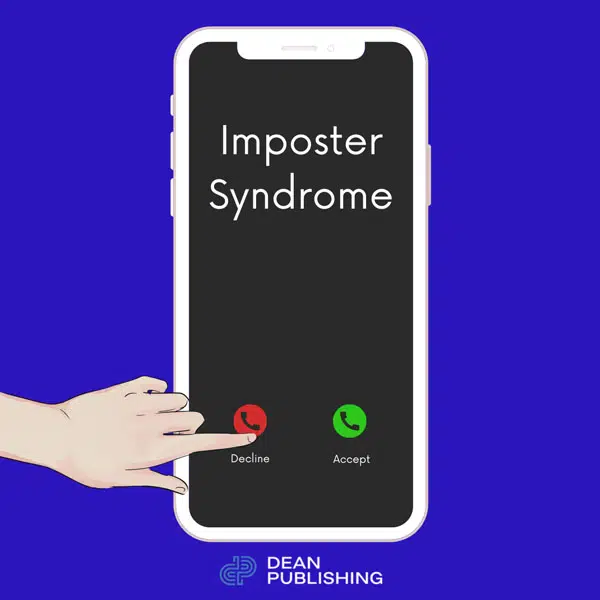Imposter Syndrome when writing a book
Embarking on the journey of writing a book is a remarkable endeavor that requires passion, dedication, and creativity. However, it’s not uncommon for writers to encounter a persistent and often paralyzing feeling known as imposter syndrome. This phenomenon can cast doubt on your abilities, stifle your creative flow, and make the writing process a rollercoaster of emotions. In this blog, we’ll delve into what imposter syndrome is, why it frequently rears its head during the writing process, and most importantly, how you can overcome it to bring your book to life.
Understanding Imposter Syndrome:
Imposter syndrome refers to a psychological pattern where individuals doubt their accomplishments and have a persistent fear of being exposed as a “fraud,” despite evidence of their competence. It’s the nagging feeling that your achievements are due to luck or circumstance, rather than your skills and hard work. When writing a book, imposter syndrome can manifest in various ways:
- Comparisons: As writers, we often compare ourselves to established authors, feeling inadequate in the face of their success and recognition.
- Inner Critic: The critical voice in your head can amplify self-doubt, telling you that your ideas are trivial, your writing is subpar, and you’re not “qualified” to be an author.
- Perfectionism: Striving for perfection can create a never-ending cycle of revisions and dissatisfaction, as you feel your work is never good enough.
- Fear of Rejection: The anticipation of criticism or rejection from readers, publishers, or peers can intensify feelings of inadequacy.
Why Imposter Syndrome and Writing Go Hand-in-Hand:
- Artistic Vulnerability: Writing a book requires pouring your thoughts, emotions, and creativity onto the page. This vulnerability can trigger imposter syndrome, as you fear others may not connect with or understand your work.
- Lack of Validation: Writing is often a solitary process, and without regular feedback or recognition, self-doubt can flourish.
- High Standards: Authors often hold their work to high standards, making it easy to perceive gaps between their aspirations and their current output.
- Isolation: Spending long hours alone with your thoughts and words can lead to overthinking and a distorted perception of your abilities.
Overcoming Imposter Syndrome:
- Acknowledge and Accept: The first step is recognizing that imposter syndrome is common and doesn’t define your worth as a writer. Accept that self-doubt is a natural part of the creative process.
- Celebrate Small Wins: Break your writing journey into smaller milestones and celebrate each achievement, whether it’s completing a chapter or receiving positive feedback.
- Challenge Negative Thoughts: Consciously challenge the negative thoughts and self-criticism. Ask yourself if there’s evidence to support these beliefs or if they’re simply assumptions.
- Community and Support: Connect with fellow writers, mentors, or writing groups. Sharing experiences and receiving encouragement from others can combat isolation and self-doubt.
- Realistic Expectations: Understand that no piece of writing is ever perfect. Embrace imperfections and recognize that they are part of the learning process.
- Practice Self-Compassion: Treat yourself with the same kindness and understanding that you would extend to a friend facing similar challenges.
Conclusion:
Writing a book is a journey that requires courage and perseverance. Imposter syndrome is a common roadblock along the way, but it doesn’t have to define your experience. By acknowledging, understanding, and actively addressing these feelings, you can overcome imposter syndrome and unleash your full creative potential. Remember, every author, even the most accomplished ones, have faced doubt. The key is to keep writing, keep believing in yourself, and remember that your voice and story deserve to be heard.






